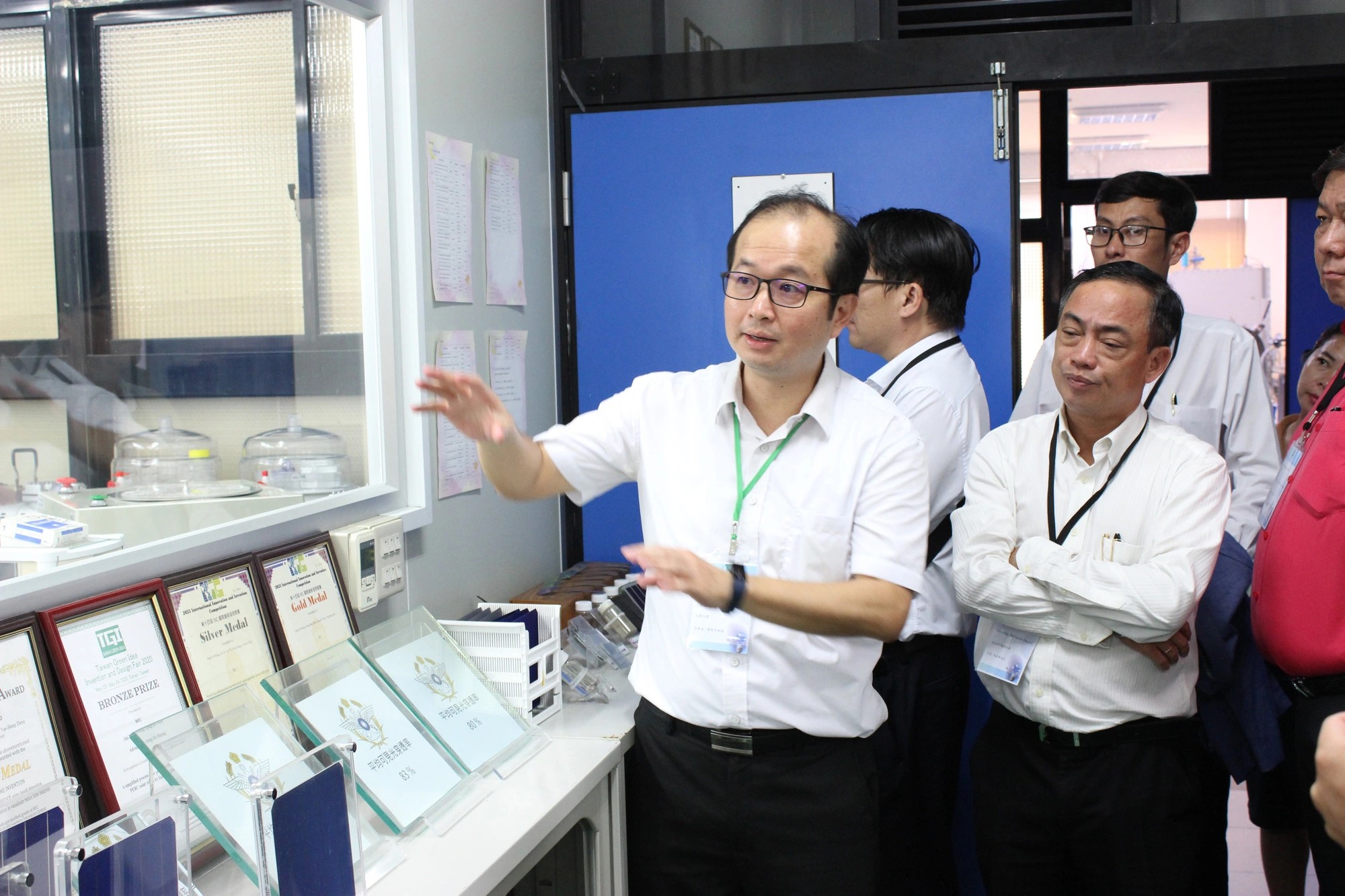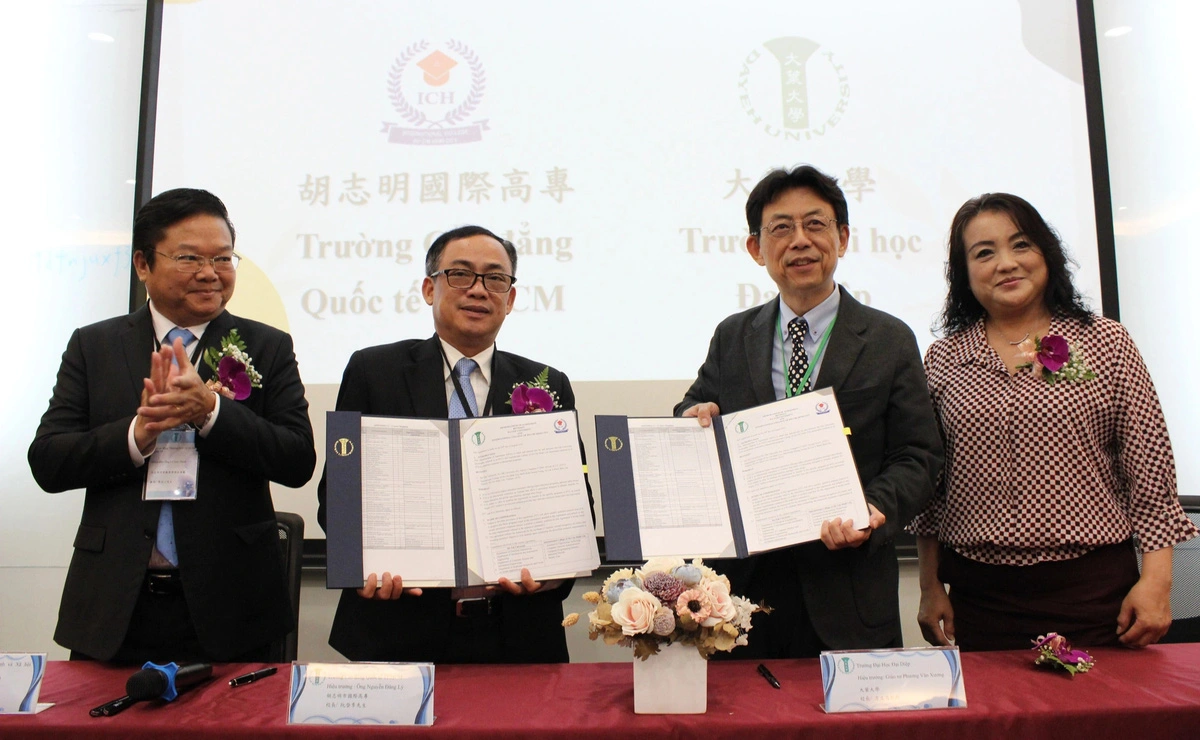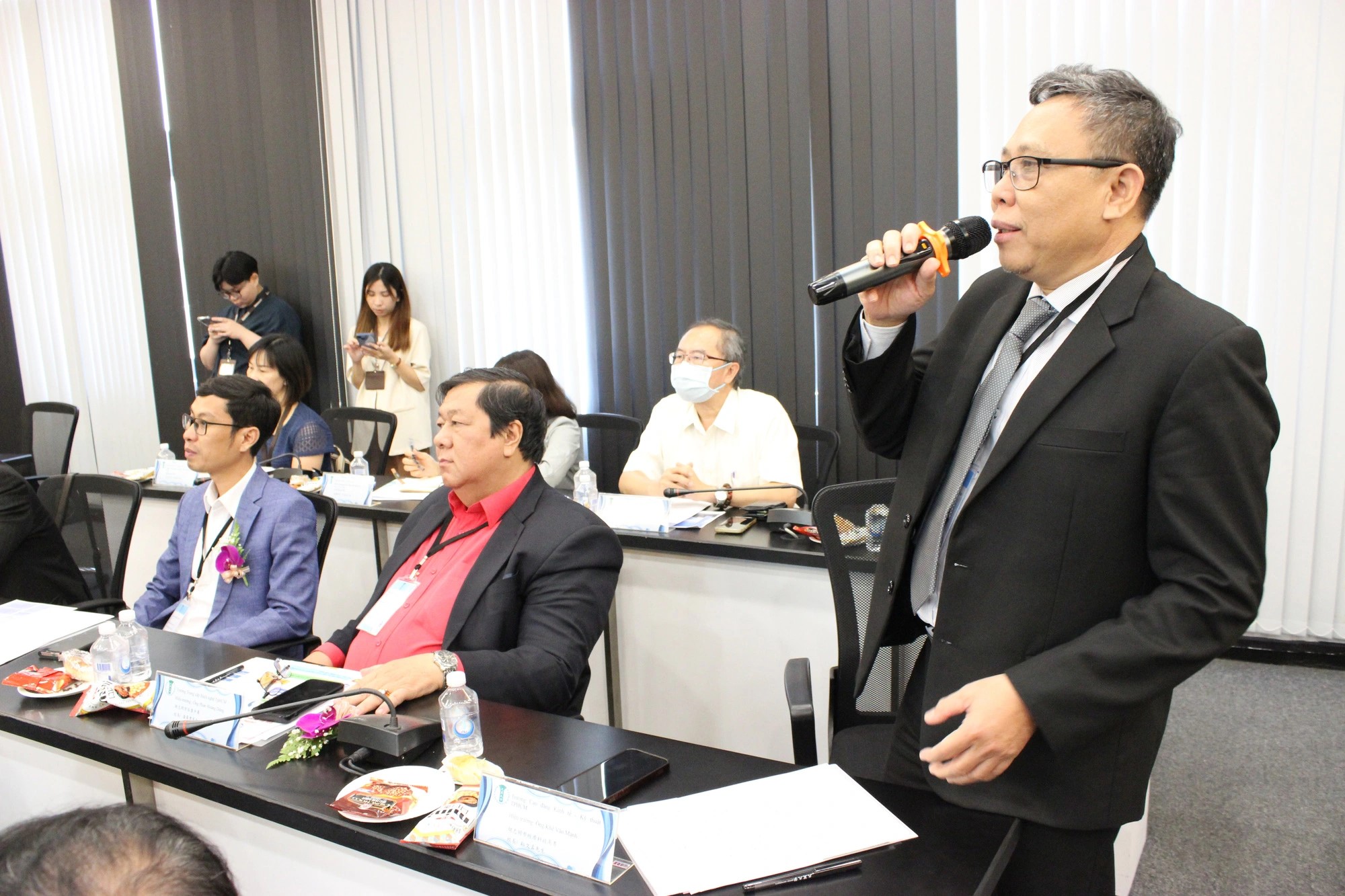Da-Yeh University in Dacun Township, Changhua County, Taiwan signed cooperation agreements with some junior colleges and vocational schools from Ho Chi Minh City last month to train human resources for the semiconductor industry.
Research indicates a significant future surge in demand for semiconductor professionals.
In response, leaders from the International College of Ho Chi Minh City (ICH) visited Taiwan in May 2024 to explore scholarship opportunities for Vietnamese students and discuss joint ventures.
Nguyen Dang Ly, principal of ICH, told Tuoi Tre (Youth) newspaper that their delegation had "visited thirty-two Taiwanese universities to explore semiconductor industry collaboration prospects. The trip was highly successful and led to discussions on a training partnership between Da-Yeh University and ICH."
Ly explained that the agreement allows for student exchanges between the institutions and focuses on three key areas: Da-Yeh University will help develop a semiconductor training program at ICH, support scientific research for students and faculty, and provide expertise for establishing a Chinese language department at ICH.
|
|
| Universities, junior colleges, and vocational schools from Vietnam and Taiwan attend the signing event for semiconductor training cooperation. Photo: Ha Binh / Tuoi Tre |
Khe Van Manh, principal of Ho Chi Minh Technical-Economic College, arrived in Taiwan with high hopes for collaboration.
Manh noted that his institution offers a range of disciplines, including mechatronics, among its twenty-four programs.
Ho Chi Minh City is poised to invest approximately VND250 billion (US$10 million) to develop a premier program in this field.
"Students in mechatronics are well-prepared for semiconductor engineering due to their strong background in electronics and robotics," Manh said.
"We identified training opportunities in Taiwan for this sector, and our mechatronics faculty are eager to gain expertise from abroad.
"During our visit, we explored interactions between faculty and students to access advanced semiconductor engineering programs."
Manh also expressed a desire for scholarships, benefits, and paid internships in Taiwan to help students advance their careers.
Nguyen Quang Tiep, chairman of Khoi Viet International College, visited Taiwan to examine the financial, infrastructural, and personnel aspects of semiconductor engineering.
"We plan to assess the demand for human resources in the semiconductor industry after our trip to Taiwan," Tiep said.
"Given future growth prospects, we are considering launching a training program to meet this demand."
Phan Hoang Dung, principal of Bach Nghe Ho Chi Minh City College, added, "The semiconductor industry will be crucial in the future. We are collaborating with Taiwanese universities to train students in this vital field."
|
|
| Le Van Thinh (L), director of the Department of Labor, War Invalids, and Social Affairs of Ho Chi Minh City, and Nguyen Dang Ly, principal of the International College of Ho Chi Minh City, sign a cooperation agreement for semiconductor industry training with Da-Yeh University. Photo: Ha Binh / Tuoi Tre |
Students have lots of possibilities
Jeng-shyong Hwang, board chairman of Da-Yeh University, emphasized at the signing ceremony that the institution "has substantial financial resources to invest in training, particularly in high-tech fields. With our origins as a technological school, we have significant experience in this area."
Hwang highlighted the university’s commitment to providing excellent student support, including comfortable accommodations and adequate facilities for effective study.
"We are equipped to collaborate and ensure high-quality cooperation with Vietnamese institutes in the semiconductor field," he stated.
Luu To Dieu, a representative from Taiwan’s education sector, noted that semiconductors and artificial intelligence are among the most prominent research topics at Taiwanese universities.
"We aim to support and advance the semiconductor industry for Vietnamese students," Dieu said.
"We will also offer numerous scholarships and incentives for international students, including those from Vietnam."
Dieu expressed enthusiasm about welcoming Vietnamese students to Taiwan, recognizing the benefits of focused study and the opportunity to adapt to Taiwan’s dynamic environment.
During the signing event, Taiwanese universities such as Minghsin University of Science and Technology, Kun Shan University, and National Chin Yi University of Technology introduced the International Industrial Talents Education Special Program (INTENSE Program).
This two-year program focuses on technological training, with Taiwan covering all tuition costs.
Corporate sponsors will provide students with NT$10,000 per month (US$311), and universities will arrange hands-on training aligned with the curriculum.
Upon completion of the program, international students are required to work for the sponsoring Taiwanese company for at least two years. Afterward, they may choose to return to Vietnam or continue their careers in Taiwan.
|
|
| Khe Van Manh, Ho Chi Minh Technical-Economic College's principal, discusses semiconductor industry collaboration with universities in Taiwan. Photo: Ha Binh / Tuoi Tre |
Top-tier instruction
Le Van Thinh, director of the Department of Labor, War Invalids, and Social Affairs of Ho Chi Minh City, stated at the signing ceremony for the training cooperation with Taiwanese institutions that the city is focusing on developing high-quality human resources to support the nation’s industrialization and modernization.
Thinh spotlighted Taiwan’s advanced expertise in the microchip and semiconductor industries and expressed a desire to offer this knowledge to Vietnamese students.
"This program will provide access to companies and colleges and facilitate future tours," Thinh said.
"Through this cooperation agreement, we aim to enable Vietnamese students to study at partner universities, enhancing their skills for future career development."
|
|
| A semiconductor technology student at Da-Yeh University in Taiwan. Photo: Ha Binh / Tuoi Tre |
Like us on Facebook or follow us on X to get the latest news about Vietnam!




















































